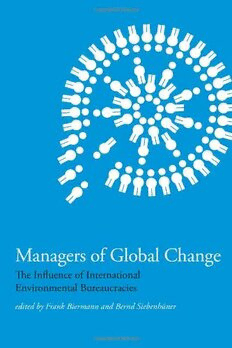
Managers of Global Change: The Influence of International Environmental Bureaucracies PDF
383 Pages·2009·1.02 MB·English
Most books are stored in the elastic cloud where traffic is expensive. For this reason, we have a limit on daily download.
Preview Managers of Global Change: The Influence of International Environmental Bureaucracies
Description:
International bureaucracies—highly visible, far-reaching actors of global governance in areas that range from finance to the environment—are often derided as ineffective, inefficient, and unresponsive. Yet despite their prominence in many debates on world politics, little scholarly attention has been given to their actual influence in recent years. Managers of Global Change fills this gap, offering conceptual analysis and case studies of the role and relevance of international bureaucracies in the area of environmental governance—one of the most institutionally dynamic areas of world politics. The book seeks to resolve a puzzling disparity: although most international bureaucracies resemble each other in terms of their institutional and legal settings (their mandate, the countries to which they report, their general function), the roles they play and their actual influence vary greatly. The chapters investigate the type and degree of influence that international environmental bureaucracies exert and whether external or internal factors account for variations. After a discussion of theoretical context, research design, and empirical methodology, the book presents nine in-depth case studies of bureaucracies ranging from the environment department of the World Bank to the United Nations' climate and desertification secretariats. Managers of Global Change points the way to a better understanding of the role of international bureaucracies, which could improve the legitimacy of global decision making and resolve policy debates about the reform of the United Nations and other bodies. Contributors: Lydia Andler, Steffen Bauer, Steffen Behrle, Frank Biermann, Per-Olof Busch, Sabine Campe, Klaus Dingwerth, Torsten Grothmann, Robert Marschinski, Bernd Siebenh?ner, Mireia Tarradell
See more
The list of books you might like
Most books are stored in the elastic cloud where traffic is expensive. For this reason, we have a limit on daily download.
